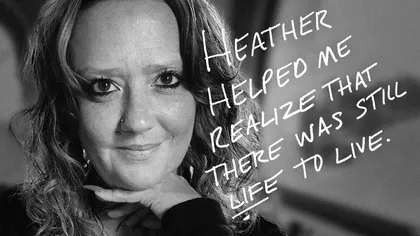
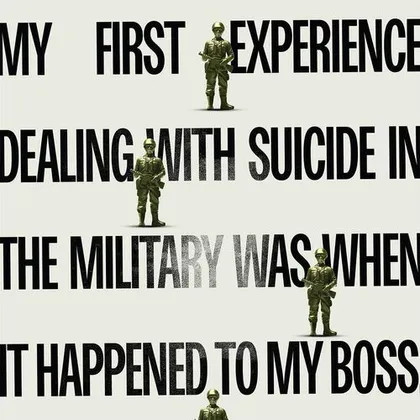
My first experience dealing with suicide in the military was when it happened to my boss.
We were one month out from going home, and he asked us if we can bring the soldiers back for him. What we didn’t know was he was having issues at home. This was the type of man who could get ice in the desert. Deployed 14 times. We got the note he killed himself. That messed me up a lot.
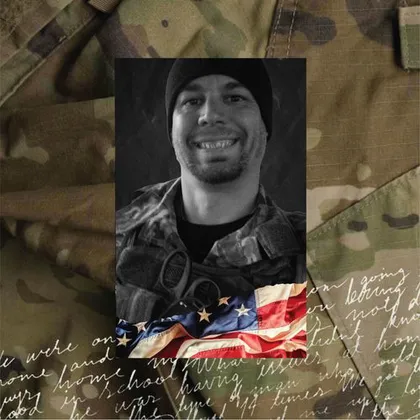
So, I went to seek help outside of the military—so it wouldn’t affect my job. The therapist didn’t understand what I had experienced. She said, you’re just grieving, but I was like no, no, it’s really messing with me. I didn’t seek help again for two years. I thought: If this was the help I was going to get, I’ll figure this out on my own.
Fast forward to November 3rd, 2010.
I was in Maryland with my fiancée, Heather. On that day we had an argument, not unlike any other that you would have with a significant other. All of the things I had been experiencing felt like too much. I snapped. I had a gun. I was going to kill myself—and likely her as well.
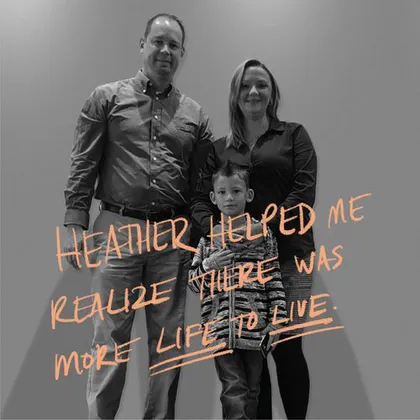
Heather helped me realize there was more of life to live. She got the police, who were outside, to talk to me. I snapped back out of it, and I thought, my god! My personal life was destroyed. My job, my security clearance being in a special unit, my 16 year career was done.
I said to Heather, “Go.” But she didn’t leave. She knew the minute she walked out that door what was going to happen. I was going to go out by my own hand. I got up against the wall, I was in the fetal position by the door with the gun to my head.
She helped me get out of that dark moment. After that, I was able to self-refer to a military hospital. I did a lot of other programs, outpatient therapy, anger management, PTSD groups.
None of those actually worked for me, until I went to a veterans service organization.
I was then able to keep my clearance on a probation period. Eventually, I was put in charge of a premiere counterintelligence group in the army. My boss, my captain, was like, I think you have a great story, you should tell it. I now talk to veterans and share with them how to act, how they come home, how to change their minds in moments of crisis.
Together with my family, I have spoken across the world to the White House to veterans’ affairs to NATO, telling our story. It’s important to have that support system.
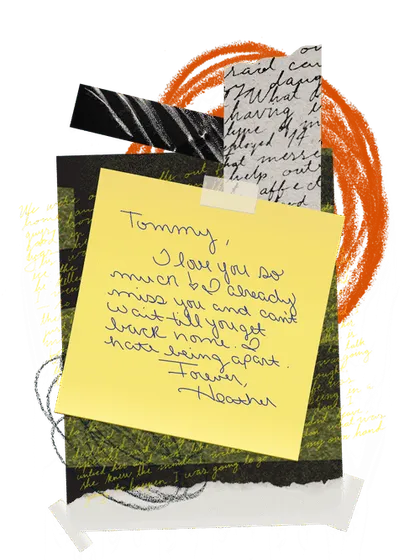
I still keep the post-it notes with affirmations that Heather smuggled in to my treatment facility.
They let me know that I have to be better.
As far as guns, I used to keep one fully loaded on the nightstand, because that was what I was used to. In my army training, we drilled so much, were at such an elite level with firearms that we all thought: “I am the safety.”
But chances are, if I’m in the same position as before, next time I might do it.
It only takes a moment. Now, I don’t keep a round in weapon; the magazine and the weapon are separated. I have a lock on it, and I also have two 5500 series locks that are on my case. Yeah, I might not have quick access, but now I have time and distance between me and the weapon, because we know that time and distance can negate a possible bad deal.
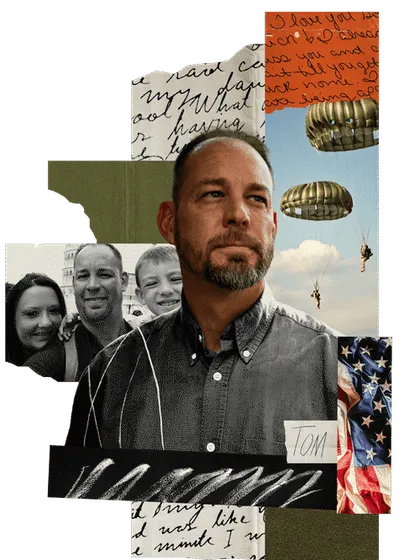
I'm still a big gun advocate. I love my weapons. But I can love them safer than what I was doing before.
It doesn't take away from who I am. It doesn’t take away from my elite training with special forces groups, my manhood. But now, I'm safe for my family.